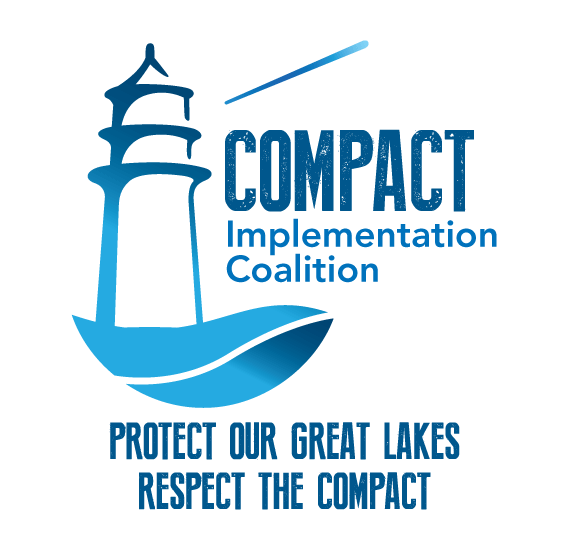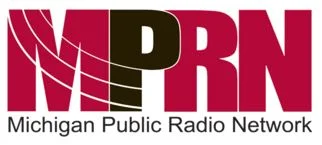
Governor Rick Snyder
Office of the Governor
P.O. box 30013
Lansing Michigan 48909
Twitter: @onetoughnerd
Facebook: Governor Rick Snyder
Michigan State Lead
Tip of the Mitt Watershed Council
www.watershedcouncil.org
426 Bay Street
Petoskey, MI 49770
Lead Contact
Jennifer McKay
jenniferm@watershedcouncil.org
(231) 347-1181
STATE Resources
5 Things You Need To Know
April 4, 2016
Author: Rick Pluta
(MPRN-Lansing) State Attorney General Bill Schuette has sent a letter to Great Lakes governors challenging a proposal to allow the Wisconsin city of Waukesha to withdraw water from Lake Michigan.
The state attorney general has no formal role in approving or disapproving the request for a pipeline to Lake Michigan that would withdraw millions of gallons of water to replace the city’s contaminated water supply.
That decision belongs to the eight governors of states that border the lakes. But Schuette could file a lawsuit depending on the answer to that request.
Waukesha lies near, but not within, the Great Lakes basin. The attorney general’s questions include whether there’s an alternative to pulling water from Lake Michigan, what guarantees there are that the water will be recycled back, and whether there are protections against invasive species as part of the take-and-return.
April 1, 2016
Author: Jacob Owens
Schuette asks:
Waukesha plans to share the water with several neighboring communities, do these other communities also have the same lack of access to other sources like Waukesha?
Are there any alternatives that do not require diverting the Lake Michigan water?
Does the plan include a reasonable method of maximizing the return flow to Lake Michigan?
Does the plan ensure that there will be no significant adverse impact to the Great Lakes region? For example, will it ensure that invasive species, such as viruses, are not transferred into the Great Lakes?
“The Great Lakes are one of the greatest resources not only for Michigan, but for the entire country,” said Schuette. “… Our Great Lake resources are far too important to allow a major disruption without intensive research and approval from all Great Lake states.”
April 1, 2016
Author: Arthur Thomas
Michigan’s technical review was submitted by a March 22 deadline, but the report’s authors said they have not reached a final conclusion.
“The state of Michigan continues to seek clarity from the State of Wisconsin and the applicant and awaits a response to its third round of questions,” the review says.
Waukesha is seeking water for not only the city, but a potential expanded service area that includes portions of the towns of Waukesha, Genesee and Delafield and the City of Pewaukee. Waukesha and the Wisconsin Department of Natural Resources say that service area is required under state law, but the Michigan review raised questions about whether it meets the requirements of the compact.
“The city of Waukesha has demonstrated that Waukesha and the area it currently serves is without adequate supplies of potable water, but the remainder of the proposed water supply service area has not,” the report says.
March 31, 2016
Author Garret Ellison
On Thursday, March 31, Bill Schuette sent a formal letter to the council of Great Lakes governors considering whether to approve the controversial request by Waukesha, Wis., to divert water from the Great Lakes basin.
More questions about the request need to be answered, Schuette wrote.
"Waukesha's request to divert millions of gallons from Lake Michigan is very serious and unless the strict exception standard is met, should be denied."
Petoskey News, March 9, 2016
Author: Mark Johnson
“This reinforces our already strong arguments against granting the diversion request,” said David Holtz, chairman of the Michigan Sierra Club Executive Committee, which signed a letter to Gov. Rick Snyder urging him to deny the request. “It is a pretty weak proposal.”
Petoskey News, March 7, 2016
Author: Mark Johnson
Opposition continues to grow against a Wisconsin town’s request for a Great Lakes water diversion.
According to a Tip of the Mitt Watershed Council press release, a combination of environmental and conservation organizations and other organizations throughout the state, totaling more than 25, signed a letter to Gov. Rick Snyder asking he deny a diversion request of approximately 10.1 million gallons of water per day submitted by the city of Waukesha in Wisconsin. The organizations claim the proposal fails to meet legal standards of the Great Lakes-St. Lawrence River Basin Water Resources Compact.
“We want to ensure any diversion requests meet the strict standards of the compact,” said Jennifer McKay, Tip of the Mitt Watershed Council policy specialist. “This is a showing across the state that we collectively feel the application submitted by the city of Waukesha falls short.”
Holland Sentinel, February 19, 2016
Author: Mary McKSchmidt
Waukesha claims to be such a city. But while it is critical that residents in the Great Lakes region have access to clean, safe drinking water, Waukesha’s application should be denied by the good for Lake Michigan water, the Waukesha application is not in compliance with the compact. In addition, it appears that another reasonable alternative exists for Waukesha’s current water service area. To allow such exceptions in this first application sets precedent and undermines the very essence of the 2008 compact and agreement.
Florida has sunshine. Arizona has dry heat. We have water. Clean, fresh water is key to our transition from “The Rust Belt” to a world leader in innovation, prosperity, and sustainable growth. Great Lakes waters should be protected for residents and businesses in the Great Lakes Basin and those straddling communities who truly demonstrate a dire need.
Petoskey News, February 12, 2016
Author: Editorial
However, their solution to divert Great Lakes water to meet their population needs does not meet the standards of the Great Lakes Compact. According to the Alliance for the Great Lakes website, the compact is a formal agreement between the Great Lakes states — Michigan, Wisconsin, Illinois, Indiana, Minnesota, New York, Ohio and Pennsylvania — created in 2008 to help protect the health of the Great Lakes, as well as prevent diversions of Great Lakes water — similar to what the town of Waukesha is requesting.
Because of this, the Tip of the Mitt Watershed Council and many other officials both government and non-profit — including the National Wildlife Federation, For the Love of Water, Michigan Environmental Council and some of the Native American tribes of Michigan —are recommending the Gov. Rick Snyder put a stop to the application.
“We are actually recommending that Gov. Rick Snyder deny approval to the application,” said Jennifer McKay, policy specialist for the Tip of the Mitt Watershed Council. “It does not meet the standards put forth in the (Great Lakes-St. Lawrence River Basin Water Resources Compact).”
We agree.
Petoskey News, February 10, 2016
Author: Mark Johnson
According to the Alliance for the Great Lakes website, the compact is a formal agreement between the Great Lakes states — Michigan, Wisconsin, Illinois, Indiana, Minnesota, New York, Ohio, Pennsylvania — created in 2008 to help protect the health of the Great Lakes, as well as prevent diversions of Great Lakes water, similar to what the town of Waukesha is requesting.
According to McKay, the request does not meet measures put forth through the Compact, the first regarding officials presenting a feasible and less expensive alternative to the requested diversion. The applicant must show there is no reasonable alternative water supply, McKay said, which also includes conservation measures.
McKay said there are alternatives available.
“Reports have been put out by firms showing that Waukesha has feasible alternatives,” she said. “If they use deep and shallow water wells and invest in additional water treatment infrastructure, they could meet standards for radium without diverting, and the cost is significantly less. It secures clean water for Waukesha while minimizing potential impacts.”











Michigan Live Radio, March 14, 2016
Author: Rebecca Kruth
In a letter to the Great Lakes-St. Lawrence Regional Body and Compact Council, 41 conservation groups say Waukesha fails to meet diversion requirements laid out in the Great Lakes Compact:
The City of Waukesha: 1) does not justify why it needs so much more water than it is currently using; 2) does not consider all reasonable alternatives to provide potable water for its residents; and 3) proposes to divert Great Lakes water to communities who do not need it. Consequently, the [Great Lakes] Compact prohibits the approval of an exception from the ban on diversions.